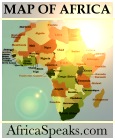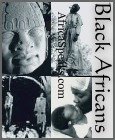Morgan Tsvangirai's gaffe
Posted: Wednesday, January 16, 2002
scrutator
www.africaonline.co.zw
Thursday 17 January, 2002
IT was obvious that the ZANU PF election directorate -- and through the latter, also the ZBC and the state-related print media -- would capitalize on what, by any standards, must be the biggest gaffe on the part of a politician aspiring for the top job in any country.
But we are still to confirm to what extent this reflects on the nature of the MDC itself as an organization composed of a variety of forces and political aspirations, and whether Morgan Tsvangirai's call for sanctions against his own country represents more the views of the Rhodesians that constitute a major factor in the opposition movement and less that of the patriots in the latter.
What is worse is that Morgan Tsvangirai's call for South Africa to impose sanctions against Zimbabwe is in strong contrast to the position of both our southern neighbour and the former colonial power. In the very same broadcast in which Tsvangirai was elaborating on how South Africa could easily impose such sanctions, the British Foreign Office reiterated its earlier position that it could not favour such a policy since this would hurt the majority of the Zimbabwean population. Likewise, Tsvangirai's statement this week has only provoked the South African authorities into yet another reiteration that they are opposed to the policy of sanctions, in favour of 'quiet diplomacy'.
Reliable sources at our disposal confirm that the South African, British and European Union officials on the Zimbabwe desks are acutely embarrassed at Tsvangirai's gaffe.
"If only he had limited himself to smart sanctions as some of us in the EU have consistently done!", exclaims one of my colleagues in Brussels.
Indeed, for most Zimbabweans the threat of sanctions has been so remote until Morgan Tsvangirai brought the danger to their very door step this week. Such were his words during the BBC interview on Monday this week: "The threat to undermine the elections by the military, by President Mugabe himself, should actually send shock waves to South Africa and say, under those circumstances, we are going to cut fuel, we are going to cut transport links.
"Those kind of measures, even if they are implemented at a low level, send the right signals" As I stated earlier, it is a shame for Tsvangirai that even the neighbour he is calling upon to take such drastic action against his own country should seek to educate the opposition leader about both pan-Africanism and the folly of sanctions. As South Africa's Deputy Foreign Minister, Aziz Pahad, stated when reiterating that his country would never opt for sanctions against its neighbour, which is its major trading partner in the region, "we've been working at this for a long time, trying to convince people, that what is called (for is) quiet diplomacy.
"Calls for sanctions are misplaced. Effectively sanctions have been applied on Zimbabwe. All foreign aid has been terminated. There is effectively no new development aid. Investment has been frozen and exports from Zimbabwe have been dropped, I think.
"Sanctions are not the way to go" I am surprised that there are doubts in some quarters -- including our own parliament -- that Tsvangirai indeed uttered those words, including even a suggestion that he might have been quoted out of context. No! Morgan Tsvangirai was merely expressing a view-point shared by a large section of those who constitute the leadership and policy management of the MDC. Significantly, the latter factor excludes the majority of the rank and file membership, including a number of the black members of the national executive of the MDC.
For, even before the extent of Tsvangirai's gaffe became self-evident as the state-related media -- and Jonathan Moyo himself -- went to town, sections of the foreign media, particularly those based in Harare and associated with the MDC's policy management affairs, were boasting that "The presidential candidate of the Movement for Democratic Change opposition, Morgan Tsvangirai, called on the (SADC) meeting to impose sanctions on Zimbabwe, saying that two years of 'softly-softly' diplomacy had failed to curb Mugabe's abuses".
"The MDC wants the overseas bank accounts of Mr. Mugabe, his cabinet and leaders of his party, ZANU PF, frozen immediately, and a petrol, transport and electricity blockade to be imposed by South Africa", wrote Andrew Meldrum and Chris McGreal in Tuesday's Guardian, extrapolating in their own fashion, beyond what Morgan Tsvangirai actually said in his interview, but reflecting a policy position that is quite dominant in the upper echelons of MDC with a large Rhodesian contingent.
To be fair, Morgan's words during that BBC interview were less his own than those of his Rhodesian and/or Anglo-Saxon advisers. This was a theme borne out of desperation on the part of people, perhaps not him, who now want to see the whole house brought down. For, to be fair to Morgan, he would otherwise be aware of the difference between opposing and/or seeking to win office on the one hand, and reducing Zimbabwe into a bowl of hunger, civil war and internecine conflict on the other. Sadly, he had to be reminded of all this by a Zimbabwean public which, while critical about the government of the day, is largely patriotic, nationalist and, therefore, defensive of the national interest and their economic welfare and social security.
This is why Zimbabweans in general but also those observers of the current situation in this country need to be more discerning, if they, too, are not to fall prey to the dilemma which Morgan Tsvangirai created for himself this week.
For, the perception of the Zimbabwean situation which has become increasingly dominant at home and abroad is that established and developed upon by the Rhodesian element operating mainly from South Africa but also as representatives of such British media as The Daily Telegraph. This is the Zimbabwe according to Rhodesian eyes! Even the SABC Morning edition the other day broadcast a piece from Peta Thornicroft, described as a 'foreign correspondent from the London Daily Telegraph'. The point is that such white Zimbabweans as Peta Thornicroft have an axe to grind quite different from that which Morgan Tsvangirai or any other black Zimbabwean would have, even if some of my compatriots in the MDC would want to argue otherwise.
Therefore, it would help a great deal if the MDC began to disaggregate itself into the various segments that constitute it, so that those of us genuinely interested in an organic opposition that would further the cause of democracy can identify with that nationalist element within that organization.
Reprinted for Fair Use Only from:
www.africaonline.co.zw/mirror/stage/archive/020117/perspectives22352.htmlPrinter friendly version
Send page by E-Mail

Previous Page | Zimbabwe Watch | Historical Views | Home
NOTICE: All articles are the copyright property of the writers. In accordance with Title 17 U.S.C., section 107, some material on this site is provided without permission from the copyright owner, only for purposes of criticism, comment, scholarship and research under the "fair use" provisions of federal copyright laws. Visit: http://www.law.cornell.edu/uscode/17/107.shtml for more details. If you wish to use copyrighted material from this site for purposes of your own that go beyond 'fair use', you must obtain permission from the copyright owner.










